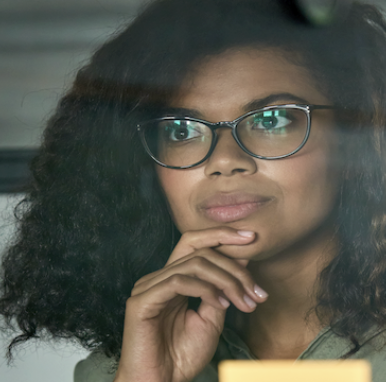Articles & Interviews
Deep learning, human agency and the power of play
An interview with Jamie Gerlach on the Art of Teaching podcast.
This podcast was published on September 9th, 2025
An interview with Jamie Gerlach on the Leadership Decanted podcast.
This podcast was published on May 25th, 2025
An interview with Michael Anderson on The Learning Horizons (previously The NAME IT ) Podcast.
This podcast was published on July 2nd, 2023
An interview with Jamie Gerlach on the Only Learning In The Building Podcast at the ReimaginED conference.
This podcast was published on December 22nd, 2024
Jamie Gerlach, an educator and leader who believes in the power of deep learning to build human agency and sees access to rigorous play as a basic right for all. For over a decade, he has designed and led professional learning in embodied literacy, 4C learning and school transformation, working with teachers and leaders across Australia and internationally. Jamie has also lectured at the University of Sydney and spoken at national conferences. In this conversation, we explore his philosophy, passion and practical insights for reimagining education.
Leadership and the Art of Deep Transformation
The word 'transformation' is thrown around in all sorts of contexts and in all manner of attempts to sell change. The outcomes are never given, but the stumbling block is usually us. And it's not about the oversimplified trope of being resistant to change. What is often ignored in both small and large change initiatives is that success rests on the skilful way we can navigate the change process itself. Sitting in the discomfort of uncertainty; working through potentially polarising differences with our colleagues; voicing our concerns and our ideas, despite perceived risks, so that we can all generate the best possible solutions. All of these are skilful practices no one ever really teaches us, but without which we simply spin our wheels.
Education as a “midwife” to democracy
Developing Agency Through The 4Cs
Bridge Building Podcast Episode 65: Datta Podcast: Creativity with Jamie Gerlach.
An interview with Jamie Gerlach on the Kaleidoscope Podcast
This podcast was published on August 7th, 2024
Pt 1: The Entitlement To Create Pt 2: A Deeper Sense of the World
A multi-part interview with Prof Michael Anderson on the Game Changers podcast with Philip Cummins.
Pt 1 of this series was published on June 11, 2024. Pt 2 was published on June 27, 2024.
Transformative Learning
An interview with Jamie Gerlach on the Kaleidoscope Podcast
This podcast was published on March 26th, 2024
Michael Anderson is interview on The Art of Teaching with Mathew Green Podcast.
This podcast was published on August, 2023.
A podcast interview with Michael Anderson and Glen Snowball on the Learning Conversations podcast from Inaburra School.
This podcast was published on March 24, 2023 on The Inaburra School Podcast.
A podcast interview with Michael Anderson on the Leadership Decanted Podcast.
This podcast was published by Apple Podcasts on Jan 30, 2022.
I have come to the belief that our subject area, if done well, is a haven for the generation of creativity, and the concern we have is that when training our teachers there is little or no emphasis on how to teach this creativity or design thinking.
Jamie Gerlach from 4CTL and I love how he explains it. Creativity as a process. When you think of it like that, all sorts of possibilities arise.
I have come to the belief that our subject area, if done well, is a haven for the generation of creativity, and the concern we have is that when training our teachers there is little or no emphasis on how to teach this creativity or design thinking.
Jamie Gerlach from 4CTL and I love how he explains it. Creativity as a process. When you think of it like that, all sorts of possibilities arise.
The 4Cs
Professor Michael Anderson is interviewed on The DRAMA NSW Podcast
This interview went live in Sept 2020.
Transforming Schools and Organisations
An interview with Michael Anderson on ABC Radio National.
This interview was published by Radio National on April 20, 2019.
In this special series for the Game Changers Podcast, Phil Cummins and Michael Anderson enjoy a great discussion about creativity, education and building the schools of tomorrow.
⏺ Disruption ⏺ Agency ⏺ Participation ⏺ Creativity
If any of these topics are spiking your interest, take time out of your day to listen to the provocations of Jamie Gerlach as he shares his experiences and learnings with David Drumond and Christina Luzi on this episode of the Kaleidoscope Podcast.
Professor Anderson is a Professor of Creativity and Arts Education in the Sydney School of Education and Social Work at The University of Sydney and Co-Director of the CREATE Centre. He is an internationally recognised educational leader in school transformation processes.
Creativity is something which is inherent in each of us, and yet certain activities we engage in can strengthen that capacity. Michael shares a global perspective on where creativity education is up to, and Glenn speaks from the viewpoint of a teacher seeking to build students’ creative capacity for design thinking.
Professor Michael Anderson joins us over a few glasses of wine to talk about his research and work in the areas of education and how some of the ideas, concepts and frameworks might be relevant to leadership practice.
In this episode Sonia interviews Michael Anderson about what the 4C's are, how it's based on Drama pedagogy and the way in which it is transforming schools.
4C's Co-Founder Michael Anderson spoke to Geraldine Doogue on ABC Radio National about our work in Transforming Schools and Transforming Organizations.
Transformative Learning, education as an infinite game, and the CREATE Centre at the University of Sydney
Building Creative Capacity
Educating Leaders
Articles by the 4CTL team
Reflective supervision: one way to address the crisis at the top
One way to address the crisis at the top
An article by 4CTL Practice Leader, Dr Mary Ann Hunter, our co-founder Prof. Michael Anderson, and their colleague A/Prof. Geoff Broughton. This article was published on April 24, 2025.
Future Frontiers Analytical Report
Preparing for the best and worst of times.
An article authored by Professor John Buchanan, Dr Rose Ryan, Professor Michael Anderson, Professor Rafael Calvo, Professor Nick Glozier, Dr Sandra Peter for the NSW Department of Education. This article was published by NSW Dept of Education on May 13, 2018.
Why do we educate our children? Is the why being lost in the how in Australia?
Modern testing regimes certainly don’t tell us all we need to know about student progression and what’s working.
An article by Michael Anderson for AARE’s publication EduResearch Matters. This article was published on the EduResearch Matters website on March 4, 2019.
AARE: Our schools need to take a mighty leap into the future
Let’s dump outmoded practices and mindsets
An article authored by Michael Anderson and Miranda Jefferson for AARE’s publication EduResearch Matters. This article was published on July 9, 2018.
Teachers must disrupt the classroom in the automation age
Machines don't care about making society flourish, but teachers do.
An article by Michael Anderson for Huff Post. This article was published by Huff Post on June 6, 2017.
Forget the 3Rs: Modern Schools Need to Embrace the 4Cs
Imagine a school where the students have the agency to know how to learn.
An article by Michael Anderson for the Sydney Morning Herald. This article appeared in the Sydney Morning Herald on March 7, 2017.
Creativity in Education
The Creative Thinking Project
Professor Michael Anderson of The University of Sydney joined “The Creative Process” course last week to give a compelling guest lecture on the importance of creativity in education. Published August 14, 2015.
This year’s kindergarten students will face a different world when they graduate
If we want to avoid our schools becoming museums teaching for the past – what changes can we make?
An article by Michael Anderson for the Sydney Morning Herald. This article was published by the Sydney Morning Herald on Jan 27, 2018.
Towards a pedagogy of creativity
Perhaps we are now inching closer to what we might call a pedagogy of creativity.
A blog article written by Michael Anderson for Kadenze Creative. This article was published byFeb 22, 2023.









